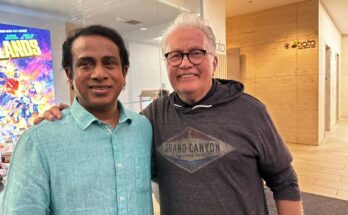A 27-year aged man receives a second lease of life at Kauvery Hospital, Chennai!
The team successfully revives, and treats, a patient in cardiac arrest who had gone beyond the window of opportunity for return of spontaneous circulation (ROSC)
| Symptoms of Sudden Cardiac Arrest
· Sudden collapse · Loss of consciousness · No pulse · No breathing · Preceding Chest pain · Preceding extreme weakness · Preceding fast heart beating, fluttering or pounding heart (palpitations) Action to be taken · Immediately call the ambulance service or urgently move the person to the nearest hospital · Perform CPR if you are well informed about it |
- A sudden cardiac arrest can be fatal if not treated within 3 to 5 minutes. If blood circulation to the brain is not restored within 3 minutes it deprives oxygen to the brain, causing irreversible brain damage.
- Despite a downtime of 20 minutes in reaching the hospital, the patient survived a massive cardiac arrest without sustaining any brain damage
- In India, 10 % of deaths occur due to sudden cardiac arrests
Chennai, April 27th 2021 :
A 27 yearold man was brought to Kauvery Hospital Emergency departmentin the late evening with no signs of li fe; he had sufferedintense chest pain at home followed by a sudden cardiac arrest. It took around 20 minutes to get him to the hospital.The team immediately startedAdvancedCardiac Life Support (ACLS) resuscitative meas ures; he received emergency electrical cardioversion (shocks) with no reversion to normal rhythm; his chances of survival were remote, with high likelihood of brain damage leaving him in a vegetative state, which is the glo bal experience under such circumstances.
The efforts to revive the young manwent on in full swing for over 30min s. Briefly he got back theheartbeat, only to slip back soon into cardiac arr est. Hopes crashed as he began sinking again. In this grim scenario, Kauv ery Ho spital, one of the leading healthcare chains in Tamil Nadu, succes sfully revivedthis young victim of“out of hosp ital cardiac arrest” which carries a very grim prognosis.
“The patient was brought to the emergency room, having alreadypassed the window of opportunity to receive treatment that can hope to achie ve any likely revival back to life. He was pulseless; his pulse, breathing, BP and oxygen level could not be recorded. While receiving vigorous and continued cardiac resuscitation, he was imme diatelytransferred to the Hybrid Cath Lab. Emergency V-A ECMO support (Extra Corporeal Membrane Oxygen ator) was initiated in no time. The ECMO instantly started supporting the functions of the lung and heart, with its pump outside the hu man body,whichmaintained the blood flow and delivery of oxygen to the vital organs – the brain, the kidney and the liver etc.” saidDr.ManojSivaramakrishnan, the attending Senior Interventional Card iologist at Kauvery Hospital Chennai.
He further added- “While the patient remained in cardiac arrest, ECMO assisted in successful high risk angiop lasty and stenting with a bioresorable coronary scaffold (dissolving stent – another novel treatment in heart di sease) that re-canalized (opened) the 100% blocked artery,restoring normal flow to the heart. He was looked after by the multi-disciplinary critical care team; the ECMO support was removed after 3 days and much to everyone’s surprise and delight, this young man sprung back to normal conscious state, with no trace of brain defect or paralysis”.
After 4days he suffered another heart attack at midnight hours which was also successfully treated.His heart function recovered from initial 20% to a near- normal 55%. Later he walked back home after a medical mir ac le.This gratifying outcome is very rare, and isextremely challenging to cardiologists and emergency care phy siciansasa delay by every secondwill lead to severe brain damage where the patient will remain in a state ofcoma for rest of his life (vegetative state)or die.
Patient was likely in a state of suspended animation which could explain his zero brain injury according to DrM anojSivaramakrishnan. He says this is an instance that highlights the fact that timely resuscitation and ECMO supported resuscitation – eCPR–are central to, and crucial in,the management of victims of cardiac arrest.None should be sent away without immediately initiating life support resuscitation when brought with a history of short period of unresponsiveness.“Kauvery Hospital always offers 24 x 7 ECMO services. In this case, with imm ediateAdvancedCardiac Life Support, intervention with Angioplasty and Stenting and ECMO support, we suc ceeded inbringing him back to normal life with zero brain damage or neurological complications,” he added
Speaking about this successful treatment, Dr.Aravindan Selvaraj, Co-Founder and Executive Director, Kauvery Hospital said “More awareness needs to be created on responding to sudden cardiac arrests. Lot of them do not know what should be done and they end up losing their near and dear ones. It is very critical to contact an ambu lance service or commute to the nearest hospital to get the required medical intervention within the stipulated time. This unique case of cardiac arrest is a high water mark to achieve in the field of medicine. Such sterling qua lity of treatment can be performed only with high expertise and excellent infrastructure. I congratulate Dr.Ma noj and team for helping the patient regain his life with zero complications.”





